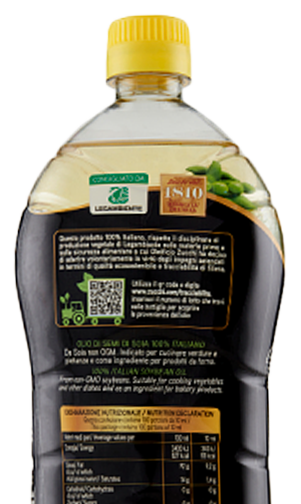Oleificio Zucchi launched the “4.0 Supply Chain” project in 2016 to maximise the value of both the traceability and the environmental, social and economic sustainability of sunflower seed oil, high oleic sunflower seed oil and soybean oil.
This process has been encouraged by digital innovation: the development of a dedicated portal has made it possible to collect a huge amount of data on all the stages in the supply chain (from seed growing to bottling and transport), in order to verify compliance with the requirements of the specification (DTP 112) needed for certification.

